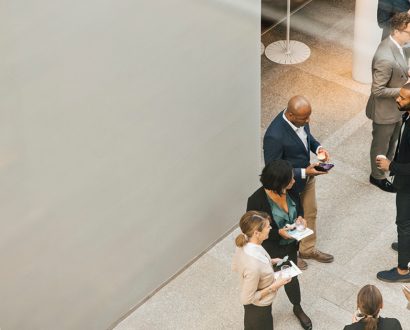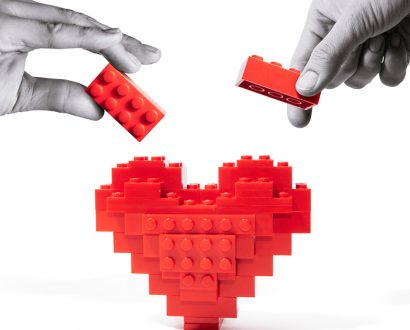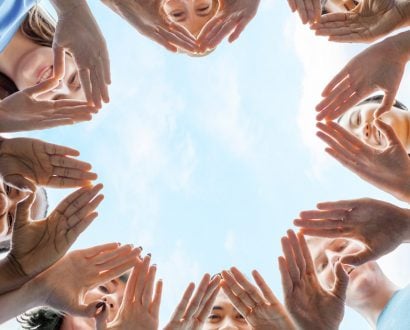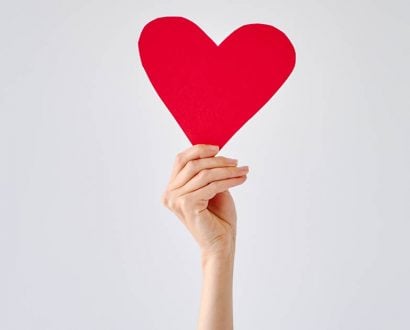“Do not let your age stop you from changing the world,” Malala said to the 8,000 attendees packed into Sydney’s International Convention Centre last Monday night. “Because I started speaking out when I was 11.
“I was not thinking for a second that, just because I’m young, I cannot change the world.”
Malala was in Australia for the first time, speaking at An Evening with Malala Yousafzai, presented by The Growth Faculty. The event was moderated by ABC journalist, Annabel Crabb.
Malala grew up in Swat Valley, Pakistan, an area popular with tourists before the Taliban arrived. In December 2008, the Taliban announced that from 15 January 2009, no girl would be allowed to go to school.
When that day came, Malala decided to act.
“When my right to education was taken away – when my future was taken away from me – I knew that I had to do something,” Malala said with conviction. “And for me, it was speaking the truth and raising my voice for my right to education. Because remaining silent was just giving up and…losing my future.”
Malala spoke up for a girl’s right to education, even blogging about her experience living under the Taliban’s conditions for the BBC. She later won Pakistan’s first National Youth Peace Prize in 2011 for her efforts.
With Malala’s growing influence, she eventually became a target of the Taliban. The next year, on 12 October, a masked gunman boarded the school bus she was on and shot her in the head. It generated a surge of outrage, and support, worldwide.
Malala was treated for her in injuries in Pakistan before being flown to Birmingham, UK for further surgery.
Miraculously, she survived and has continued to advocate for education with an even stronger conviction ever since.
“The terrorists, in order to silence me, had tried their best…and they still failed,” Malala explained. “That, to me, was evidence of how strong my voice, my mission and my activism could be.
“I was received as a threat by these people because my voice could empower girls. Because when I was speaking out for girls’ education, that meant empowering those girls, which they were afraid of.”
Malala said she was not thinking of courage or bravery when she continued to speak out.
“I was thinking of my rights. And when you speak of your rights, I think that’s something that we call courage.”
She credits her opportunity to speak up for girls to her father Ziauddin. He ran a school for female students in Pakistan after growing up with five sisters who were not given the same opportunities he had enjoyed.
“None of them finished their school,” Malala said. “My dad saw how he was given an education but not his sisters. My dad saw how he was valued more and given more attention and support than his sisters.”
As a result, Ziauddin decided that if he had a daughter, he would give her better opportunities. He also decided he would name said daughter after the Pashtun heroine, Malalai of Maiwand, who strengthened the morale of soldiers during the second Anglo-Afghan war.
“She went out when soldiers were giving up and losing the battle, raised her voice and said that if you do not die on this battlefield then you’ll live a life of shame forever,” Malala explained to the attentive audience.
“Her voice was so powerful that it turned all the soldiers back to the battlefield and then they won that war. And she’s now remembered in our history. So it tells about the power of the voice of a woman.”
It was as if Ziauddin predestined Malala for greatness. “My story is different because my dad allowed me to speak; he did not stop me,” Malala said. “And if he had stopped me, I would not have been here.”
Malala wrote a best-selling book about her experience called I Am Malala: The Girl Who Stood Up for Education and Was Shot by the Taliban.
“Often, refugees are blamed and are made to feel guilty that it is their fault that they’re leaving their homes and coming to different countries,” she said.
“But I think we need to understand it from their perspective and understand the situation that they have to go through.”
Malala is releasing the book We Are Displaced in January 2019 which tells of her own experience as an internationally displaced person and shares stories from other refugee girls in similar situations.
As a result of her tireless campaigns for girls around the world to receive an education, she was awarded the Sakharov Prize for Freedom of Thought in 2013 by the European Parliament.
She was also the youngest person to be awarded a Nobel Peace Prize in 2014, winning the accolade alongside Indian childrens’ rights activist Kailash Satyarthi.
Now studying at Oxford University, Malala continues to advocate for the 130 million girls around the world who aren’t in school by campaigning for more finance towards education and by investing in local activists.
Furthermore, she established the Malala Fund with her father, to give every girl the right to 12 years of safe, free and quality education.
“Educating girls is crucial,” she said. “We are giving them access to opportunities which they otherwise would not have without an education.
“We are making them independent. They can earn, they can help to run and sustain their families, and they can be more aware of how to take care of the environment.
“If you give an education to a girl, that’s how you’re changing her life and that’s how you’re also changing the world.”
Malala closed the event by saying that anyone can change the world, regardless of their age, culture, religion or background.
“Believe in yourself, believe in your voice, and believe in the power that you have,” she stated.
The Growth Faculty has a huge line-up of international guests coming to Australia in 2019, including PepsiCo CEO Indra Nooyi and author Brené Brown.
Learn about why respecting human rights is good for business.







